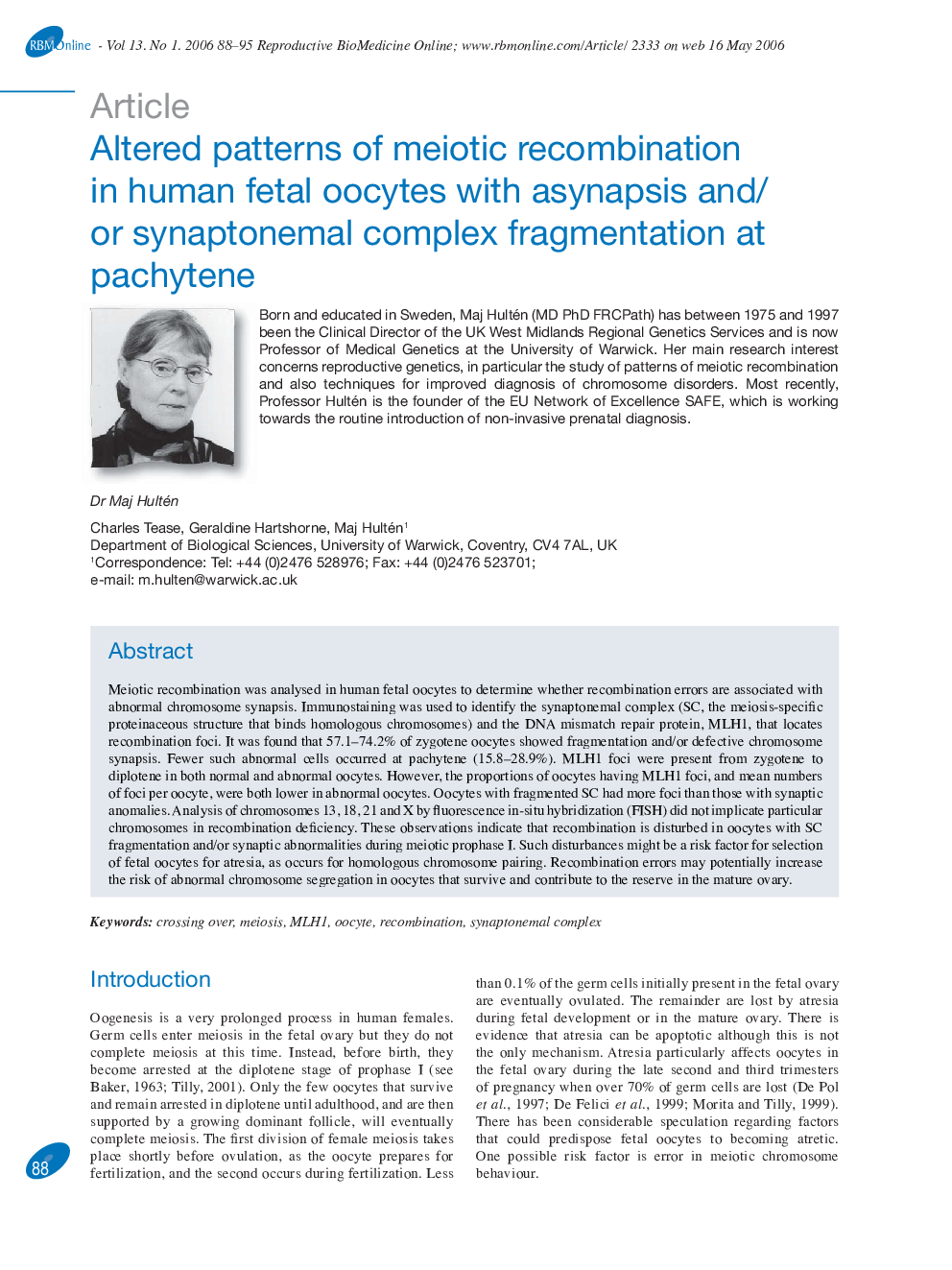| Article ID | Journal | Published Year | Pages | File Type |
|---|---|---|---|---|
| 3972925 | Reproductive BioMedicine Online | 2006 | 8 Pages |
Meiotic recombination was analysed in human fetal oocytes to determine whether recombination errors are associated with abnormal chromosome synapsis. Immunostaining was used to identify the synaptonemal complex (SC, the meiosis-specific proteinaceous structure that binds homologous chromosomes) and the DNA mismatch repair protein, MLH1, that locates recombination foci. It was found that 57.1-74.2% of zygotene oocytes showed fragmentation and/or defective chromosome synapsis. Fewer such abnormal cells occurred at pachytene (15.8-28.9%). MLH1 foci were present from zygotene to diplotene in both normal and abnormal oocytes. However, the proportions of oocytes having MLH1 foci, and mean numbers of foci per oocyte, were both lower in abnormal oocytes. Oocytes with fragmented SC had more foci than those with synaptic anomalies. Analysis of chromosomes 13, 18, 21 and X by fluorescence in-situ hybridization (FISH) did not implicate particular chromosomes in recombination deficiency. These observations indicate that recombination is disturbed in oocytes with SC fragmentation and/or synaptic abnormalities during meiotic prophase I. Such disturbances might be a risk factor for selection of fetal oocytes for atresia, as occurs for homologous chromosome pairing. Recombination errors may potentially increase the risk of abnormal chromosome segregation in oocytes that survive and contribute to the reserve in the mature ovary.
